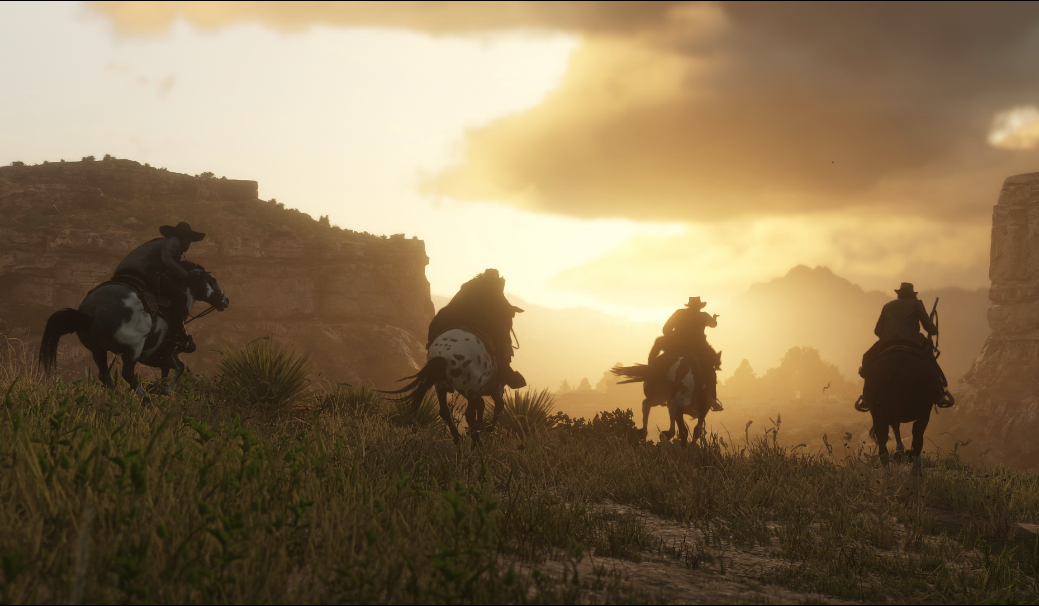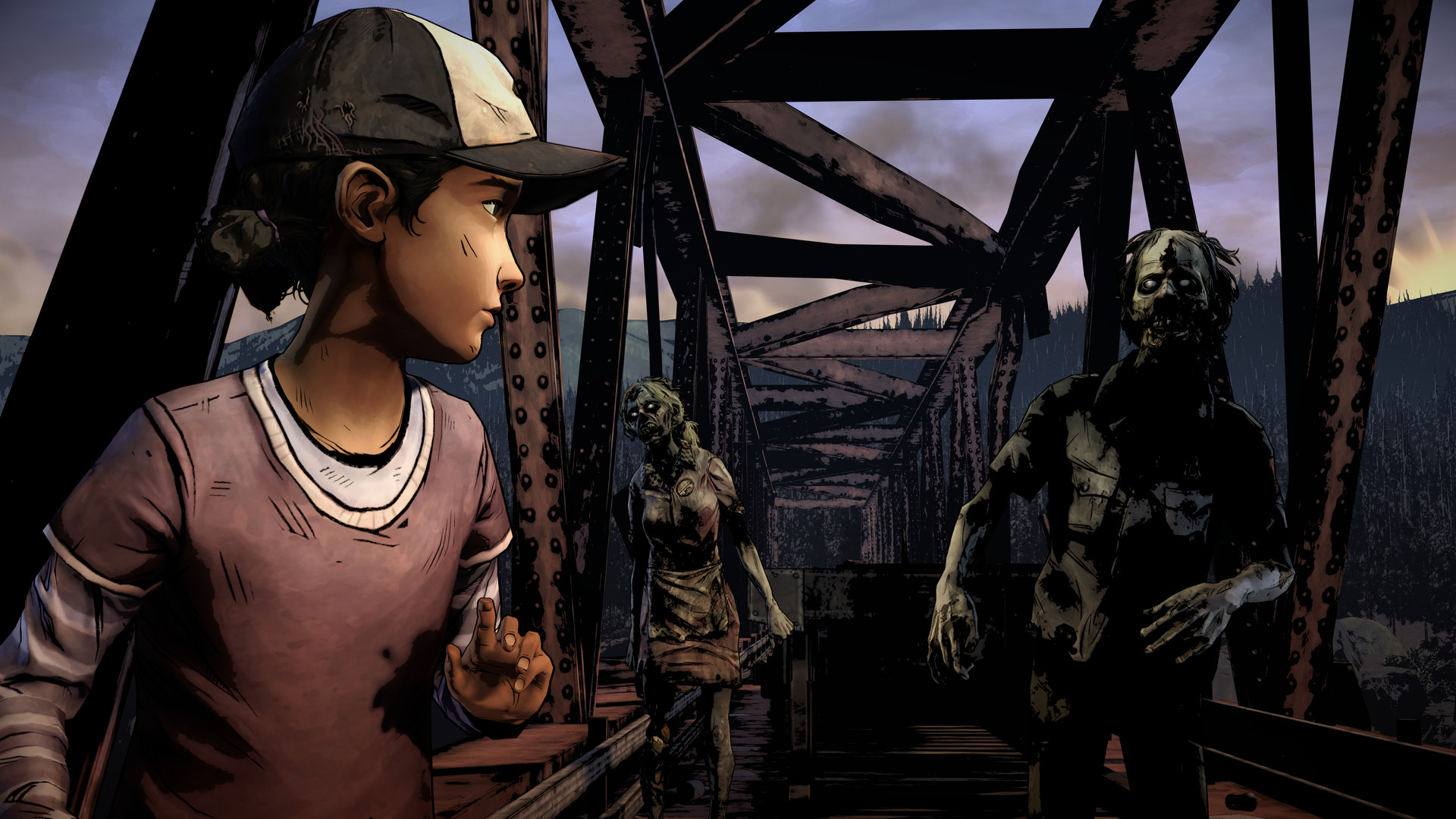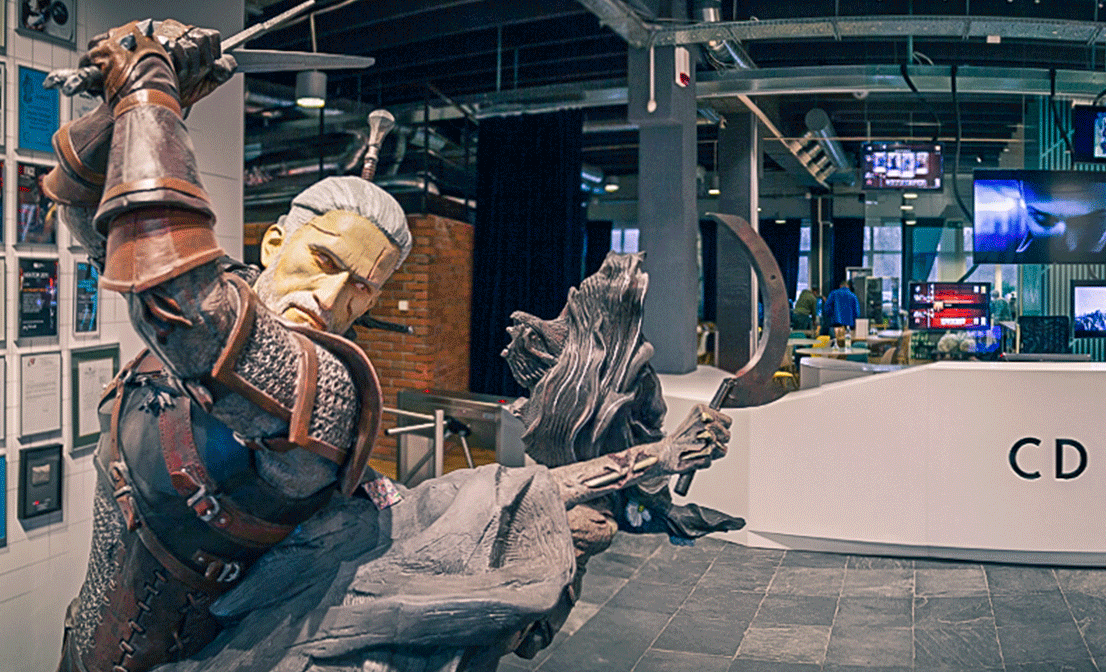Gentlemen’s Guide: Bangkok’s 5 Best Barber Shops
These top 5 barber shops in Bangkok are where gentlemen can elevate ...

[This story first appeared in Koktail Magazine Issue 3.]
Whether you’re a gamer or not, the enormity of the video game industry is undeniable. It has come a long way from 1972’s Pong, one of the earliest games ever released that involved two paddles and a ball—simple, yet in those days, a marvel. The gaming industry is remarkably now bigger than the film industry, raking in almost US$180 billion in 2020 while the global film industry barely hit the US$100 billion mark in the same year, according to MarketWatch. We have multi-billion dollar studios churning out award-winning titles, a whole community dedicated to competitive esports, and even people making a living out of playing video games.
It’s an industry and a community that exudes creativity from its very core, from those who design and make the games to the fans who cosplay characters, but there’s a dark side beneath it all. The intricately-crafted fantasies and awe-inspiring graphics we experience on our screens are the results of countless, tightly-compressed hours of exhausting, under-compensated labour.
The term “crunch culture” is well-known in the gaming community, and it isn’t too difficult to figure out what the term means. You may have heard or even used the word “crunch” in the context of workplaces before, referring to working pedal-to-the-metal to meet a deadline that’s gaining on you. Sadly, for the video game industry, it’s a regular occurrence—a part of the “culture”.
“Crunch, as it’s called, has become status quo for the video game industry, as routine to game developers’ lives as daily commutes or lunch breaks,” an article on popular gaming website Kotaku goes. Employees work 80 hours a week with no overtime pay, and depending on the game’s development stage, that could last for months, if lucky—and if not, years.
This has been happening for a long time but probably first came into public light in 2004, with a viral LiveJournal blog post penned by “EA Spouse”. EA Spouse, whose real name is Erin Hoffman, recounted how her husband, who worked for the video game publisher Electronic Arts (popularly known as “EA”), worked for 13 hours a day, seven days a week, with no compensation for extra hours.

‘Red Dead Redemption 2’ would go on to win numerous awards and garner many accolades
According to Hoffman, EA didn’t respond kindly to complaints about these hours. “Put up or shut up and leave: this is the core of EA’s Human Resources policy,” Hoffman wrote. She would later file a lawsuit against EA, one of two the game publisher would face that year, the other being a similar lawsuit from employees who worked on The Sims 2 who accused the company of not giving overtime pay.
A survey from the International Game Developers Association done in the same year threw the door open even wider. “Crunch time is omnipresent,” the finding describes, with only 2.4 per cent of those surveyed saying they’ve never undergone crunch.
This was almost 20 years ago.
Not a lot has changed since then. Rockstar Games, a famous developer who produced the successful Grand Theft Auto franchise, hit another home run with Red Dead Redemption 2 in 2018. It’s one of my favourite games of all time, immersing players in a Wild West setting while also providing a thrilling storyline of an outlaw gang and their pursuit of glory. After being nin development for eight long years, it would go on to be lauded as “Game of the Year” by many gaming publications and become one of the best selling video games of all time. However, the company became the subject of scrutiny when Dan Houser, one of the company’s co-founders, stated that people worked 100- hour weeks. Rockstar was quick to clarify, saying that it was only the senior writing staff who worked under those conditions. Their employees, however, stated otherwise.
A Kotaku article published in 2018 outlined how the directors of RDR2 decided they wanted to add black bars to cutscenes to give it a more cinematic feel. Anyone who’s played the game knows it’s one of its charms, and from a glance, it seems like a simple request. However, a person who worked on the game was quoted in the same article, “You can’t just slap black bars on the cinematics we’ve already shot. You have to reframe the camera so that the cinematics flow in a particular way, and you’re emphasising what you weren’t emphasising initially with that shot.” This was in the last year of the game’s development, a crucial time when the release date loomed closer and closer every day.

In the same year, now defunct Telltale Games would unceremoniously fire 250 of their employees with no severance. An article on The Verge revealed the crunch culture the once indie studio had adopted as it struggled to keep up with the demands of its success.
There are a lot of factors to crunch. Publishers pressure studios to have the game finished at a certain deadline to maximise profit, like releasing a game during the holiday season. But “tiny” last-minute changes—like the one Rockstar requested—can set the release date back weeks or even months. Like any machine, the bigger it gets, the more complicated it becomes, and when it’s a large studio involving many departments, a hiccup in one can cause the whole development to stall. Finally, there are the gamers themselves, who are a passionate bunch in both the positive and negative sense of the word. When they’re displeased, they’ll waste no time or words to make that known, much to the developer’s chagrin.
Another Kotaku article pointed out that because making a game is a creative process, there are days when developers and designers would be in the zone and churning out great work, while on other days, they just can’t seem to find their groove. “In other words, it’s very difficult to figure out how long it might take to finish a given task,” the article says. “Making games is messy.”

There’s no better example of this than the now-infamous 2020 title Cyberpunk 2077. Marcin Iwiński, co-founder
of CD Projekt Red who made the game, promised that crunch wouldn’t be a thing for those working on it. After it was delayed for the first time, however, CEO Adam Kiciński admitted on a public investor call that the developers were having to crunch after all. After another delay, a Bloomberg report revealed that employees were mandated six-day workweeks. This was before the game would be delayed one last time, only to be released in December in disastrous fashion: a bug-ridden product that sent consoles crashing and left gamers with a poor taste in their mouth after all of CDPR’s promises of a revolutionary open-world roleplaying game. It was even taken down from the PlayStation Store just a week after its release and wouldn’t be made available again until June of 2021.
“Crunch wrecks people mentally and physically,” Hasan Minhaj says on his Netflix programme Patriot Act with
Hasan Minhaj, which dedicated an episode deep-diving into crunch culture. “Workers say months of crunch has caused PTSD, memory loss, and ulcers that make them cough up blood.”
Despite all this, not a lot has been done to remedy the problem. In the US, game developers are actually exempt from having to pay employees overtime due to labour laws that haven’t been updated since the 90s, and this contributes greatly to crunch culture. There are also no real union options for the video game industry, though a grassroots group called Game Workers Unite is trying to change that. Some developers are also stepping up to change the way they do things. For example, Eidos, the studio responsible for titles like Deus Ex and Tomb Raider, and Bugsnax studio Young Horses have shifted to a four-day workweek.
For an industry that’s about to have 300,000 people working in it in the US alone, crunch culture is something that shouldn’t be a culture at all. People are up in arms when such working conditions are experienced in the service or film industry, but since video games are a “hobby industry”, the tone that’s taken with normalised overtime work is that you’re lucky to be paid at all to be doing something you love. Since you’re doing something “fun”, then what’s so bad about having to do 13 hours a day, seven days a week of it for months on end?
These top 5 barber shops in Bangkok are where gentlemen can elevate ...
Pets, as cherished members of our families, deserve rights and protections that ...
Wandering around the globe, try out the signature tastes of cultures across ...
Sailorr and Molly Santana’s black grills fuse hip-hop swagger with homage to ...
Oooh, Pantone just dropped their 2026 Colour of the Year and it’s ...
Pattaraporn “Nat” Salirathavibhaga’s HOMELAND supports farmers through conscious purchasing and bringing agriculture ...
Wee use cookies to deliver your best experience on our website. By using our website, you consent to our cookies in accordance with our cookies policy and privacy policy